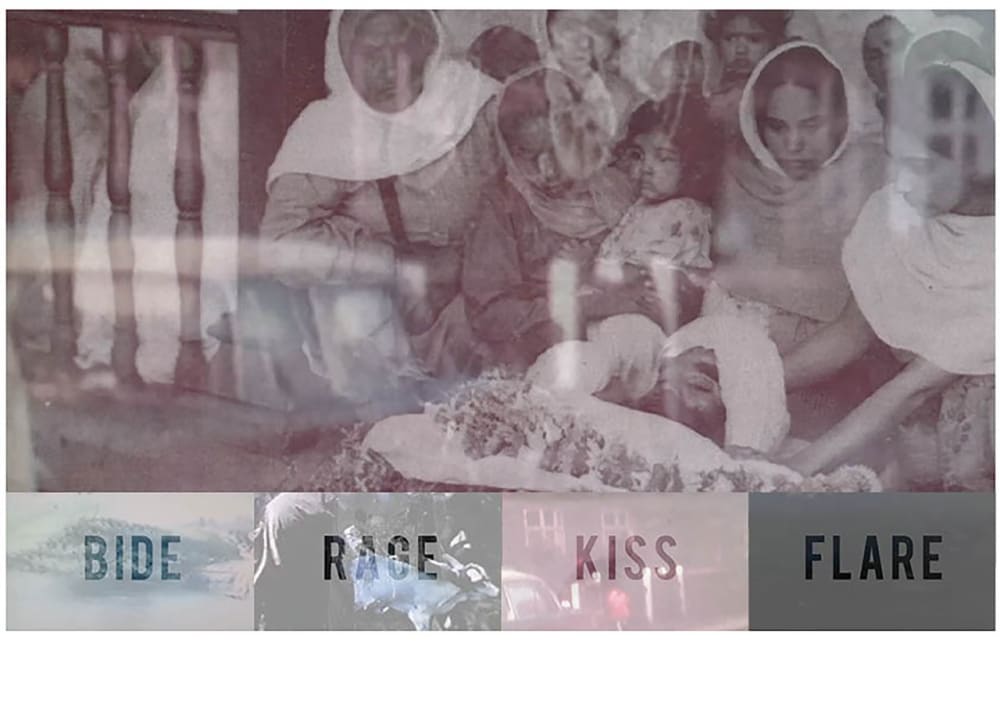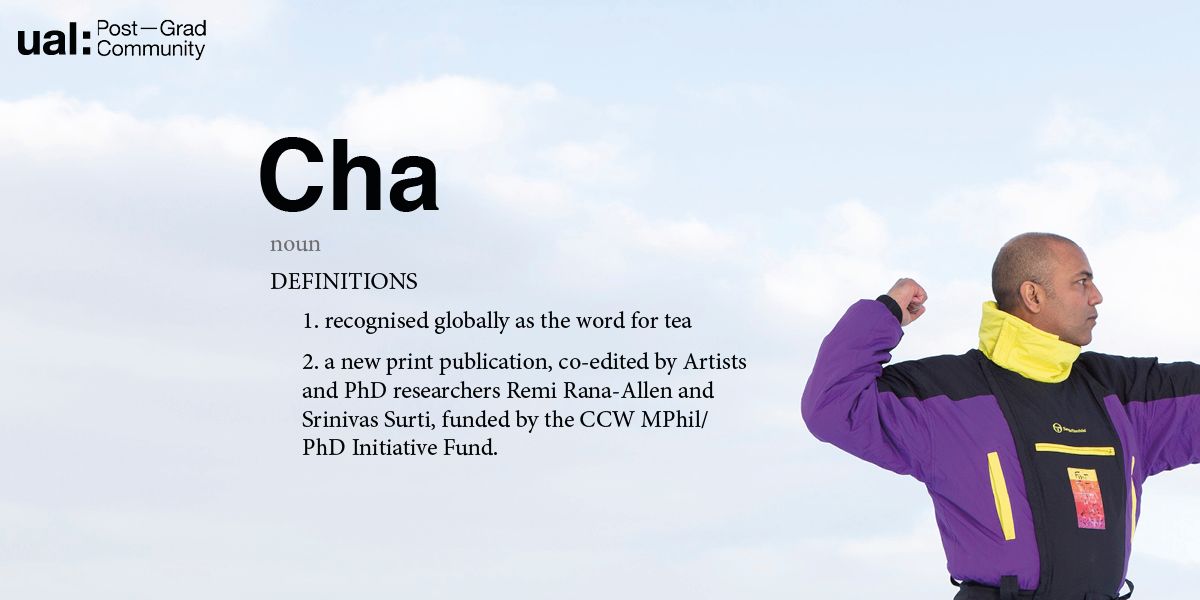
Cha: a new print publication, co-edited by PhD researchers Remi Rana-Allen and Srinivas Surti

- Written byPostgraduate Community
- Published date 01 February 2022

Cha is a new print publication, co-edited by Artists and PhD researchers Remi Rana-Allen and Srinivas Surti and funded by the CCW MPhil/ PhD Initiative Fund.
Express your interest and proposal idea here. Submissions can be in any format that can be presented in a printed publication.
EOI deadline: Tuesday 1 March 2022
Submissions deadline: Friday 1 April 2022
‘Cha’ noun: recognised globally as the word for tea
Whether it is the tea that momentarily unites a small village, or it’s poured and shared amongst high society, Cha is a bonding conversation starter, for all. Otherwise, it serves as the foundational ethos for this publication.
It may be time to ‘spill the tea’ or indeed a moment to share thoughts regarding history, Colonialism, Imperialism and Capitalism.
In the words of Stuart Hall,
“I am the sugar at the bottom of the English cup of tea. I am the sweet tooth, the sugar plantations that rotted generations of English children's teeth. There are thousands of others beside me that are, you know, the cup of tea itself. Because they don't grow it in Lancashire, you know. Not a single tea plantation exists within the United Kingdom. This is the symbolization of English identity mean, what does anybody in the world know about an English person except that they can't get through the day without a cup of tea? Where does it come from? Ceylon - Sri Lanka, India. That is the outside history that is inside the history of the English. There is no English history without that other history. The notion that identity has to do with people that look the same, feel the same, call themselves the same, is nonsense. As a process, as a narrative, as a discourse, it is always told from the position of the Other.” (1997, pp. 48-9)

So, grab that cuppa Cha, read on, and participate in the conversation…
Cha seeks to explore the notion of Brownness as a diverse and inclusive mode of cultural identification. In the current polarising climate of populism which has fuelled nationalist agendas of ‘us and them’ – Cha uses the analogy of a tea break to offer a space for contemplating states of cultural in-betweeness. Whilst the notion of Brownness implies skin colour, Cha as a publication is not restricted to this, rather it is viewed as an opportunity to promote diversity, equality and dialogue through the arts. We believe the arts to be a frame of visibility for individuals and groups to express ideas about cultural difference and belonging and invite contributions from anyone who identifies with this ethos. We also welcome voices and perspectives that aim to critique the very possibility of inclusivity through a categorisation such as Brownness.
What does Brownness mean to you? Proposals for contributions can be in any format that can be presented in a printed publication - ranging from images, writing, typography or text works, documentation of gestures or performances, moving-image and object making. This is not an exhaustive list – if you have something else in mind, that you want to share or express, we would like to hear from you.
Cha arose out of a conversation between Remi and Srinivas around the Post-Grad Community Interest Group #BLAME – Brown Leaders and Makers Exist, founded by Remi. We hope the publication will bring people together as a community to help develop other collaborative projects in the future.
Related Links
- #BLAME (Brown Leaders and Makers Exist)
- Interview from co-editor, Remi Rana-Allen
- Post-Grad Community Interest Groups
- UAL Post-Grad Community
Post-Grad Community Interest Groups
UAL’s Post-Grad Community supports a growing number of issue-specific, cross-disciplinary interest groups led by postgraduate students and academics.
These groups connect creatives with shared research/practice interests across different specialisms and subject areas..
Hear from the initiators of three thriving PhD student-led interest groups to understand how these originated and how the group has fuelled their research.
Download the Post-Grad Interest Group Set Up Guide (PDF 65KB)